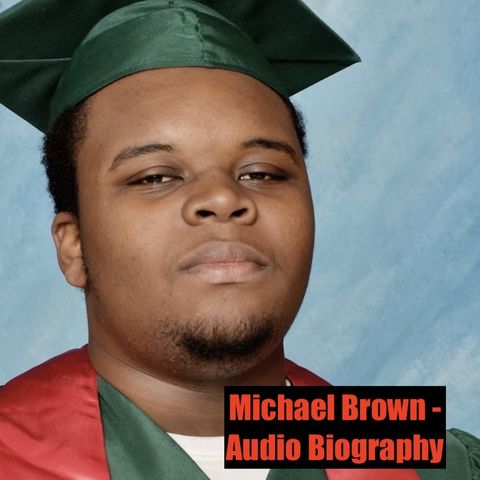Michael Brown was an 18-year-old African American man whose death on August 9, 2014, in Ferguson, Missouri, became a significant and galvanizing moment in the Black Lives Matter (BLM) movement and broader discussions about race, policing, and justice in the United States. Early Life and Background Michael Brown was born on May 20, 1996, in St. Louis, Missouri, to Michael Brown Sr. and Lesley McSpadden. Growing up in a working-class family in the predominantly African American suburb of Ferguson, Brown faced many of the challenges common in communities affected by systemic inequality. Despite these challenges, he was known to his friends and family as a "gentle giant" due to his towering height and kind demeanor. Brown graduated from Normandy High School just eight days before his death and was looking forward to starting a vocational program aimed at preparing him for a career in heating and air conditioning. The Shooting On the afternoon of August 9, 2014, Michael Brown was involved in an altercation with Darren Wilson, a white police officer with the Ferguson Police Department. The circumstances surrounding the incident remain contentious and have been the subject of multiple investigations, protests, and debates. According to Wilson, Brown had attacked him and tried to grab his gun, leading Wilson to shoot Brown in self-defense. However, some witnesses claimed that Brown had his hands up in a gesture of surrender when he was shot. Brown was shot at least six times, including twice in the head, and his body was left on the street for four hours, an image that would become a rallying point for protesters. Aftermath and Legacy The death of Michael Brown sparked immediate outrage in Ferguson, where residents took to the streets to protest what they saw as another instance of police brutality against African Americans. The protests, initially peaceful, soon escalated into confrontations with heavily militarized police forces. The scenes of tear gas, armored vehicles, and clashes between protesters and law enforcement were broadcast across the world, drawing attention to Ferguson and raising questions about the militarization of the police, racial profiling, and the justice system's treatment of African Americans. Brown's death also reignited national debates about race and policing, contributing to the growth of the Black Lives Matter movement, which had been founded a year earlier following the acquittal of George Zimmerman in the death of Trayvon Martin. The phrase "Hands up, don't shoot" became a rallying cry for protesters, even though a later U.S. Department of Justice report found conflicting evidence about whether Brown had his hands up when he was shot. The grand jury's decision in November 2014 not to indict Darren Wilson further fueled the protests and led to demonstrations in cities across the United States. The case also prompted the Justice Department to conduct a broader investigation into the Ferguson Police Department, which concluded that the department had engaged in systemic racial discrimination against African Americans, leading to widespread civil rights violations. Continuing Impact Ten years after his death, Michael Brown remains a symbol of the struggle for racial justice in the United States. His death has had a lasting impact on both the Ferguson community and the broader national conversation about race, policing, and civil rights. The movement sparked by his death has led to numerous reforms, including changes in policing practices, increased use of body cameras by police officers, and a greater awareness of the need for accountability and transparency in law enforcement. Brown's family has continued to advocate for justice and reform, founding the Michael Brown Chosen for Change Foundation, which works to empower young people and address social and economic inequalities. The foundation has been involved in various initiatives, including scholarships, community outreach programs, and advocacy for policy changes. Michael Brown's death, and the movement it inspired, has become a crucial chapter in the ongoing struggle for civil rights in the United States. His story serves as a poignant reminder of the challenges faced by African Americans and the urgent need for continued efforts toward racial equality and justice. On the 10th anniversary of his death, his memory continues to inspire activism and the pursuit of a more just society. Thanks for listening and remember to like and share wherever you get your podcasts.
show less


Comments